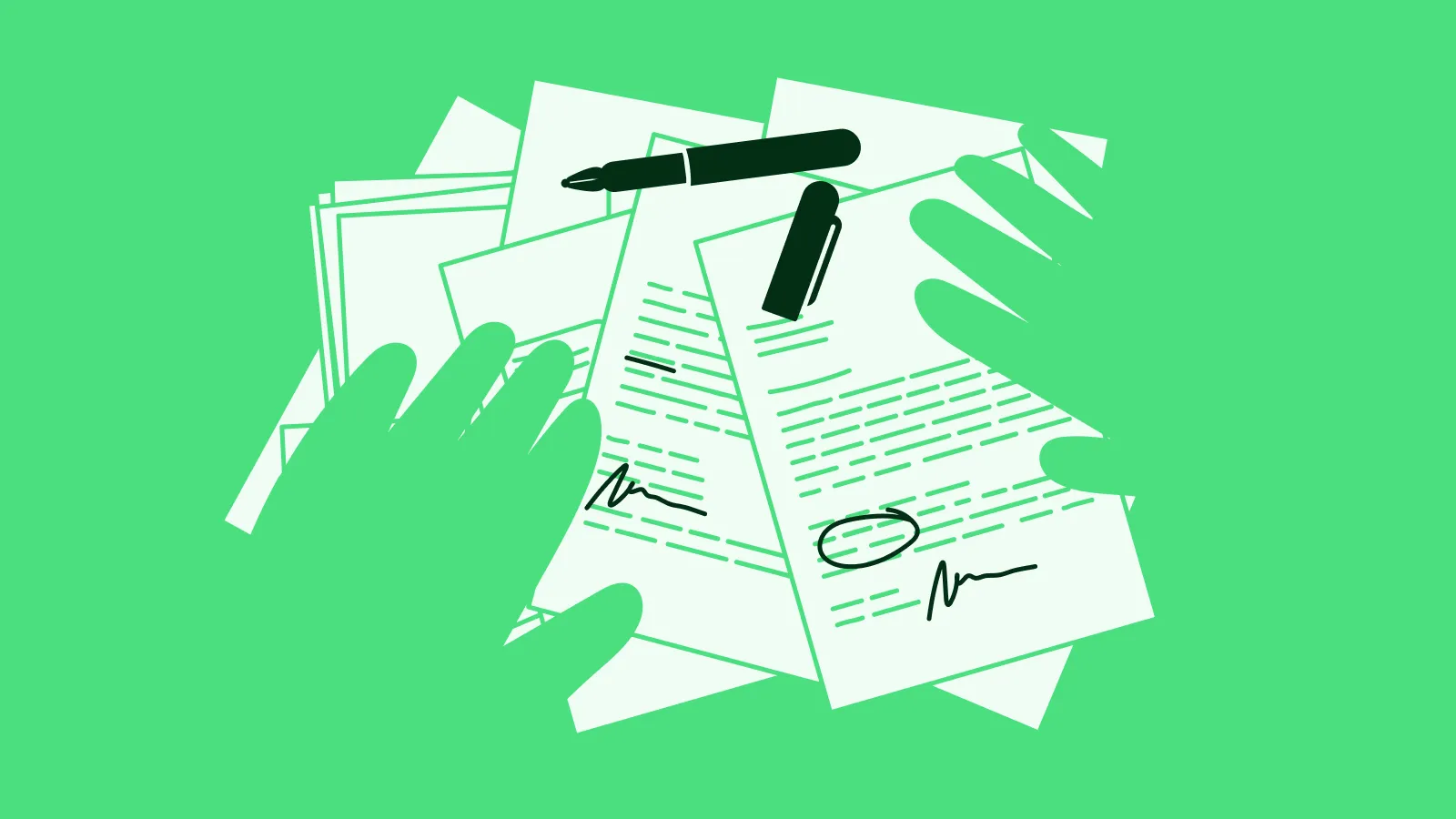£100,000 Mortgage
How much would a £100k mortgage cost? We’ve broken everything down for you: what the monthly repayments could be, deposit amounts, income needed, and how to get the best mortgage deal.
Your home may be repossessed if you do not keep up repayments on your mortgage.
Exclusive broker partner to

Author: Michael Whitehead, Head of Content
Reviewer: Paul Coss, Haysto Co-Founder and Chief Customer Officer
Updated: Nov 17 2025 8 mins
If you’re buying a property and need a £100,000 mortgage to complete the purchase, this guide breaks everything down for you, highlighting the key facts and figures you’ll want to know so you can plan your move with more confidence.
Quick Summary:
A typical monthly repayment on a £100k mortgage, based on a realistic interest rate currently of 4.5% (September 2025) and a 25-year term, is around £556.
Mortgage repayments can vary based on your interest rate and mortgage term: use our repayment calculator (below) to find out more.
You’ll likely need to earn between £20,000 and £25,000 per year to qualify for a mortgage of this amount.
Minimum deposits usually start at 5% (based on the property's value). A bigger deposit means better rates and lower monthly repayments.
With Picnic, you'll get access to the most competitive deals and smart technology to make your mortgage journey a smooth one from start to finish.
How Much Is a £100k Mortgage per Month?
Your repayments can vary depending on several factors. However, using our mortgage repayment calculator below, based on a realistic current interest rate of 4.5% (as of September 2025) and a standard capital repayment method with a loan term of 25 years, a 100k mortgage would cost £556 per month.
Regardless of the amount you want to borrow, your monthly mortgage payment is mainly affected by two things: the interest rate and the length of your mortgage term. A lower interest rate means cheaper payments, and a longer term spreads the cost out over more years, making each month more affordable.
You can use the calculator tool to see what the mortgage repayments could be for different loan terms and interest rates.
Mortgage Type
With a repayment mortgage you repay all the capital and interest during the term. For interest-only, you only repay the interest amount each month and the capital is repaid in full at the end of the term.Your monthly repayment:
Total amount repayable:
Total interest payable:
Speak with one of our experts today to learn more about your options.
Get Started NowThis calculator provides an estimate of your monthly mortgage repayments based on the information you have entered. The figures are for illustrative purposes only, your actual payments may differ, and this does not constitute a mortgage offer.
Your home may be repossessed if you do not keep up repayments on your mortgage.
The table below also gives you a quick snapshot of what a £100k mortgage payment could look like each month, depending on the interest rate and term. These figures are for illustrative purposes and also assume a capital repayment method, where each payment reduces both the mortgage loan and the interest over the term.
Interest Rate | 15 Year Term | 20 Year Term | 25 Year Term | 30 Year Term |
|---|---|---|---|---|
2% | £644 | £506 | £424 | £370 |
3% | £691 | £555 | £474 | £422 |
4% | £740 | £606 | £528 | £477 |
4.5%* | £765 | £632 | £556 | £507 |
5% | £791 | £660 | £585 | £537 |
*This line represents the most realistic repayments, based on current interest rates (as of September 2025). The figures in the table above are for illustrative purposes only.
As you can see, a longer term means lower monthly payments, but you'll pay more in total interest over the life of the loan. That’s why it’s important to work out your budget and choose a term that fits what you can afford, rather than stretching your finances or overpaying.
How Much Do You Need to Earn for a £100,000 Mortgage?
Lenders initially use a multiple of your income to work out how much you can borrow, and the general rule of thumb is between four and five times your annual income. So, as a rough guide, to get a £100,000 mortgage, you’d need to be earning between £20,000 to £25,000 per year.
If you’re applying with a partner or friend, lenders will consider your combined income, which can significantly boost your overall borrowing power.
To see how this might work out for you, based on your annual income, take a look at our quick and easy-to-use affordability calculator.
Potential property value:
Your deposit:
You could borrow:
Based on x your income at £, plus your deposit of £.
Speak with one of our experts today to learn more about your options.
Get Started NowThis calculator provides an estimate of how much you may be able to borrow for a mortgage based on the information you have entered. The figures are for illustrative purposes only; the actual amount you can borrow may differ, and this does not constitute either a mortgage offer or a mortgage in principle (MIP).
Your home may be repossessed if you do not keep up repayments on your mortgage.
Although 4.5 times your annual income is the most common income multiple used to check how much you can borrow for a mortgage, more recently, some lenders have been willing to extend this to 5x, 5.5x and, in certain circumstances, even 6 times your annual income. This means even if you earn below £20,000 to £25,000, there’s still a chance you could get a mortgage for £100,000.
Here’s an example of the wider salary ranges that could potentially secure a £100,000 mortgage.
Mortgage Target | Income Multiplier | Minimum Annual Income Required |
|---|---|---|
£100,000 | 4 | £25,000 |
£100,000 | 4.5 | £22,222 |
£100,000 | 5 | £20,000 |
£100,000 | 5.5 | £18,181 |
£100,000 | 6 | £16,666 |
This is just a starting point, though. Lenders will assess your overall financial situation, including your debts, expenses, and other regular monthly obligations, before reaching a final decision on how much you can borrow for your mortgage.
How Much Deposit Will You Need for a £100,000 Mortgage?
The deposit you need for a mortgage isn’t based on the amount you’re borrowing, but on the value of the property you’re buying. A lender will require you to put down a minimum deposit (usually at least 5% of the property’s price) and will then lend you the rest.
For example, if you wanted to buy a property for £125,000 with a £100,000 mortgage, you’d need to put down a £25,000 deposit. The ratio of the loan amount to the property's value is known as the loan-to-value (LTV) ratio. In this case, your LTV would be 80%.
Most lenders will offer more competitive interest rates the lower your LTV is. This is because a smaller mortgage, in comparison to the property's value, is perceived as a lower risk for them.
Why Pick Picnic?
With access to thousands of mortgage products, easy-to-use technology, and 100+ experts, our award-winning service is with you every step of the way.
Your home may be repossessed if you do not keep up repayments on your mortgage.
What Else Affects Your Monthly Repayments and Mortgage Eligibility?
Beyond the interest rate, term, and your financial situation, other factors can affect your mortgage repayments and how lenders view your application.
Your mortgage repayment method: You can choose a capital repayment mortgage, where your monthly payments clear the debt over time, or an interest-only mortgage, where you only pay the interest and repay the capital at the end of the term. For a £100,000 mortgage on a residential property, a capital repayment mortgage is the most common choice.
Fixed rate vs. variable rate: The type of mortgage rate deal you choose will also affect your repayments. A fixed-rate mortgage locks in your interest rate for a set period, so your payments stay the same no matter what. A variable-rate mortgage, on the other hand, can change over time.
Your credit history: Lenders review your credit report for any past issues like late payments, defaults, or CCJs. The cleaner your history, the more attractive you are. If you’ve had any adverse credit issues - don’t panic! There are specialist lenders who can still help (and we know who they are and where to find them!).
Your employment history: Lenders prefer to see stable income and a consistent work history. If you're self-employed or have a more complex earnings history, it can make you a less attractive applicant in the eyes of certain lenders. Again, if this is you, don’t panic! There are still plenty of lenders who will consider you for a mortgage (and we know who they are and where to find them!).
What Other Costs Should You Budget For?
When you buy a home, there are other costs to consider besides your 100k mortgage payment. It’s essential to budget for these up front so you don’t encounter any unpleasant surprises down the line.
Stamp Duty: A tax you pay on property purchases over a certain value (currently £125,000). If you’re a first-time buyer, you qualify for additional Stamp Duty relief on homes up to a value of £500,000.
Legal Fees: Paid to your solicitor or conveyancer to handle all the legal paperwork and local authority searches (Can range anywhere between £500 to £1,500 depending on the type of property).
Survey Fees: To check the property’s condition and highlight any structural issues that need to be fixed (Can range anywhere between £300 to £1,500, depending on the type of survey and property value).
Mortgage Fees: Some mortgages have an arrangement or product fee, which can often be paid upfront or added to your loan (Can range anywhere between £0 to £2,000).
How Much Would a £100k Buy-to-Let Mortgage Cost?
Buy-to-let mortgages are usually arranged on an interest-only basis, meaning you only pay the interest part each month. That keeps costs low, but means you’ll still owe the original £ 100,000 at the end of the term.
Using our buy-to-let mortgage calculator below, and as above, based on a realistic current interest rate of 4.5% (as of September 2025) with a loan term of 25 years, a £100,000 interest-only mortgage would cost £375 per month.
For buy-to-let arrangements, most lenders want rental income to cover 125–145% of the monthly mortgage payment. So, for a mortgage repayment of £375, the property will need to generate a monthly rental income of between £470 and £544.
Mortgage Type
With a repayment mortgage you repay all the capital and interest during the term. For interest-only, you only repay the interest amount each month and the capital is repaid in full at the end of the term.Net monthly rental income
Monthly mortgage repayment
Loan-to-value (LTV)
Interest cover ratio (ICR)
Indicates how much rental income covers mortgage repayments. Lenders typically look for an ICR of between 125%-145%.
Rental yield
Indicates the annual return on investment from the rental income expressed as a percentage of the property value.
Speak with one of our experts today to learn more about your options.
Get Started NowThis calculator provides an estimate of your monthly mortgage repayments based on the information you have entered. The figures are for illustrative purposes only, your actual payments may differ, and this does not constitute a mortgage offer.
Your home may be repossessed if you do not keep up repayments on your mortgage.
Can You Get a £100k Mortgage with Bad Credit?
Yes, it’s possible. Having a low credit score or a history of bad credit doesn’t automatically mean you can’t get a mortgage. While some high-street lenders might say no, many specialist lenders are much more willing to help.
These lenders look at the whole picture, not just your credit score. They will consider the type of credit issue, when it happened, and the amount involved. It might mean you have to pay a slightly higher interest rate or put down a larger deposit, but it’s definitely not impossible.
Whatever your credit situation, with the assistance of our award-winning sister brand, Haysto, we’re confident we can help you find a way forward.
Why Pick Picnic for Your £100,000 Mortgage?
Trying to find a mortgage deal on your own can be a challenging and time-consuming process. Having an experienced mortgage broker on your side - like us! - makes things much smoother and stress-free.
Here’s how we can help:
Finding you the best mortgage deals: Our mortgage team will already know which lenders are currently offering the most competitive rates, having access to the wider mortgage market rather than just a handful of high-street lenders. They can compare mortgage deals from over 100 lenders to find the one that’s right for your circumstances, including exclusive offers not generally available elsewhere.
Your mortgage, made simple from start to finish. Our online portal allows you to track your mortgage application step-by-step, sign and upload documents in seconds, and contact your mortgage team at any time. No back-and-forth emails. No printing. No guesswork. Everything you need, all in one place, so you can stay organised and in control of your mortgage journey.
Making mortgages possible, whatever the circumstances: Our team of advisors have a clear understanding of the eligibility criteria used by each lender and will identify the one that's best placed to help. Our sister brand, Haysto, specialises in helping customers who've been turned away elsewhere. For anyone with a complex income or adverse credit record - we’re here to support you!
Start Your Mortgage Journey with Picnic
Whether you’re looking to calculate mortgage repayments for a 100k mortgage or need to find a specialist deal, our team is ready to help you every step of the way.
At Picnic, we understand that your mortgage journey, either as a first-time buyer or experienced home mover, can often feel overwhelming. But with our assistance, we can make sure you move through each stage with confidence and clarity.
If you’re ready to make your move, all you have to do is make an enquiry and one of our Mortgage Experts will contact you to get started.
Related Pages
Porting Your Mortgage

The Picnic Guide To Buying a Home

How Conveyancing Works

How Stamp Duty Works

Speak to One of Our Experts
First or next move, remortgaging or investing - get clear advice from our award-winning experts to help you find the right mortgage.
Your home may be repossessed if you do not keep up repayments on your mortgage.